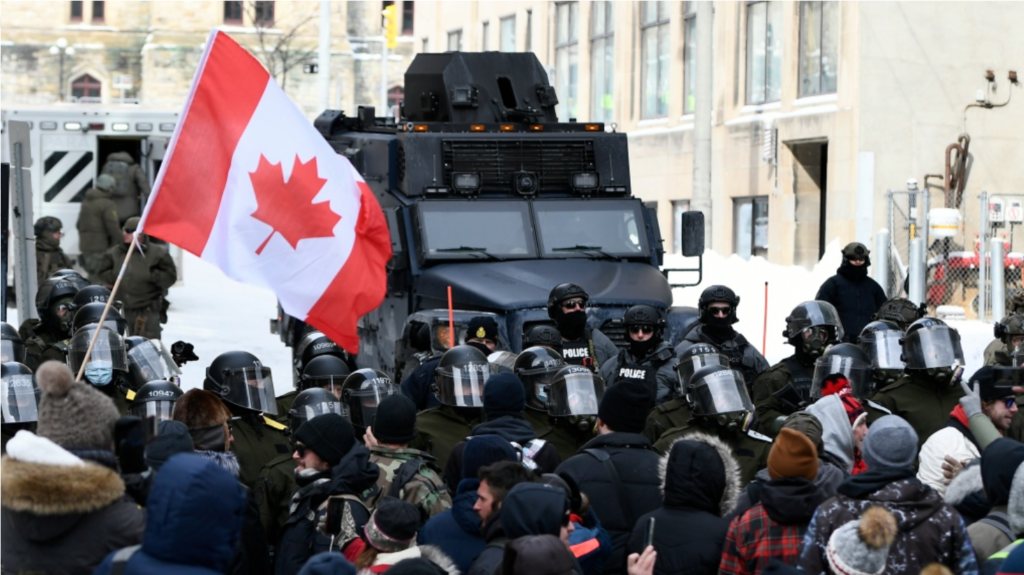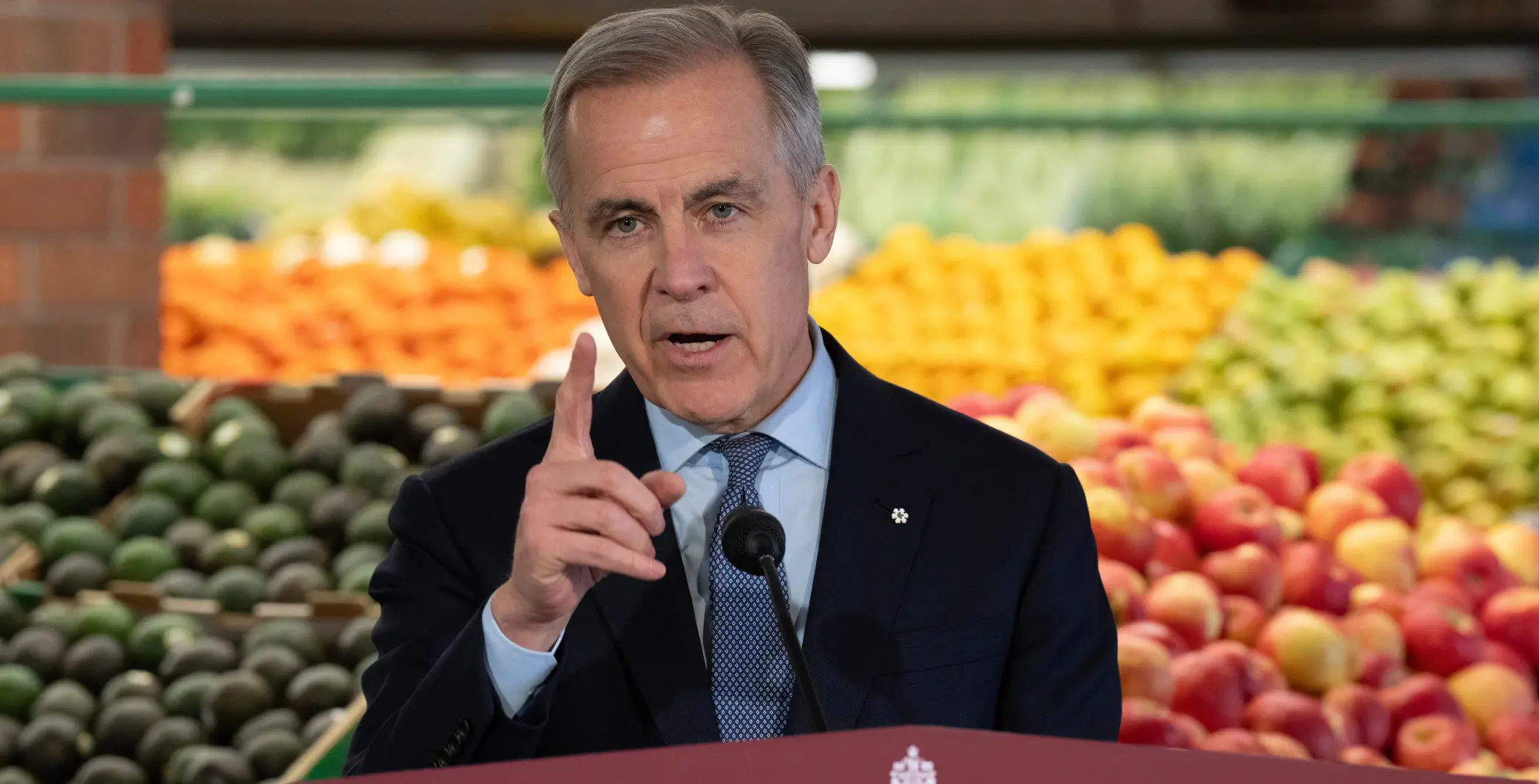(Courtesy: The Canadian Press.Justin Tang)
The Federal Court of Canada has ruled that the Emergency Act used during the February 14 2022 “Freedom Convoy” was a violation of the Charter of rights and freedom.
The use of the Emergencies Act was implemented after protesters in “The Freedom Convoy” – many angry about pandemic restrictions – descended upon Ottawa in large transport trucks and blocked streets, blared their horns and left many residents feeling helpless and in a state of fear.
The temporary powers allowed rules to be put in place for things like regulating and prohibiting public gatherings and directing banks to freeze the accounts of protestors.
“I conclude that there was no national emergency justifying the invocation of the Emergencies Act and the decision to do so was therefore unreasonable and ultra vires,” Federal Court Justice Richard Mosley wrote in a Tuesday decision.
Mosley’s decision comes following four legal challenges made by the Canadian Civil Liberties Association and the Canadian Constitution Foundation along with other civil liberty groups who argued that the Liberals took advantage of their power when they initiated the act.
Additionally, the judge found that using the act to resolve the situation violated the participants’ freedom of expression.
Despite this, he says he understands why the government would invoke the act given the extreme circumstances and he would’ve done the same thing.
“I was leaning to the view that the decision to invoke the EA was reasonable. I considered the events that occurred in Ottawa and other locations in Jan. and Feb. 2022 went beyond legitimate protest and reflected an unacceptable breakdown of public order,” the ruling said.
Not sure convoy supporters celebrating this ruling have read it closely, the judge notes that if he was the government, he probably would have invoked it too.
— Luke LeBrun (@_llebrun) January 23, 2024
He says the Freedom Convoy “went beyond legitimate protest and reflected an unacceptable breakdown of public order.” https://t.co/AvcPSC4h2d pic.twitter.com/JsBHBTDZuj
The judge goes on to say that he has considerable sympathy for those in government who were confronted by the situation.
FEDERAL GOVERNMENT RESPONDS TO RULING
Meanwhile, federal officials have spoken out against the ruling.
"We respect very much Canada's independent judiciary, however we do not agree with this decision," says Deputy PM Chrystia Freeland as she announces the government will appeal a Federal Court ruling that the February 2022 invocation of Emergencies Act was unreasonable.
— CPAC (@CPAC_TV) January 23, 2024
#cdnpoli pic.twitter.com/GFZ827z2Ab
On Tuesday, Deputy Prime Minister Chrystia Freeland said that the federal government does not agree with the decision and plans to appeal it.
“I would just like to take a moment to remind Canadians of how serious the situation was in our country when we took that decision,” Freeland said. “The public safety of Canadians was under threat. Our national security, which includes our national economic security, was under threat.”
“We will have more to say in the coming days as we fully digest the contents of the decision,” according to Noa Mendelsohn Aviv, Executive Director and General Counsel of the CCLA.









